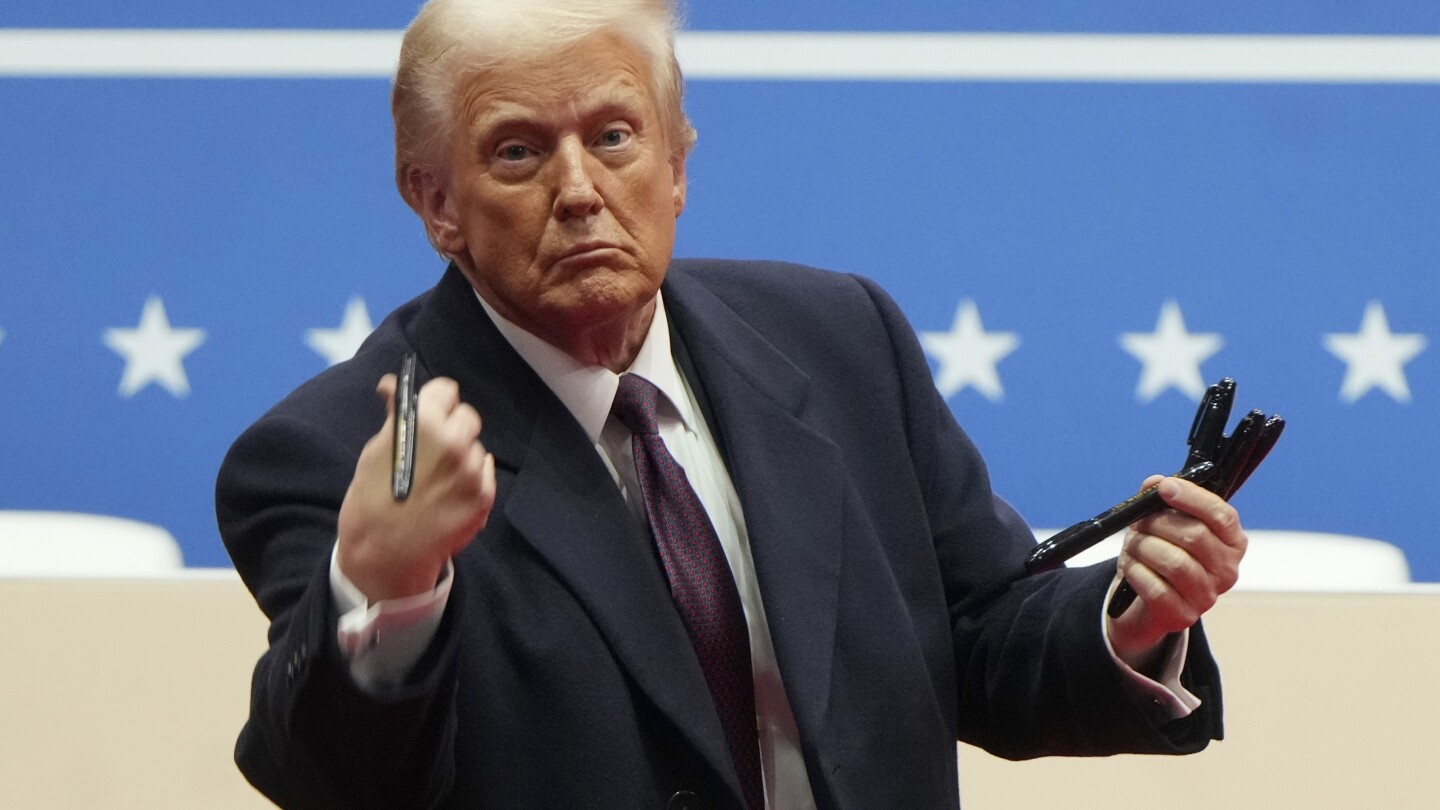Unraveling the Confusion: Trump’s Executive Orders on DEI Explained
As uncertainty swirls around President Trump’s executive orders on Diversity, Equity, and Inclusion (DEI), it is essential to unpack the complexities of these directives. These executive orders, which have sparked significant debate and concern, aim to reshape the landscape of federal engagement in a variety of sectors, including education, employment, and governmental operations. This article delves into the details and implications of these policies, providing clarity on what they entail and how they affect various stakeholders.
The Background of Trump’s Executive Orders on DEI
In the latter part of his presidency, Donald Trump issued a series of executive orders that sought to restrict the implementation of DEI training and initiatives within federal agencies and contractors. These orders arose from a growing critique of what Trump and his administration deemed “divisive concepts” that they believed undermined the principles of meritocracy and individualism.
The primary executive order, issued in September 2020, specifically prohibited federal agencies from conducting training that promotes concepts such as critical race theory and systemic racism. The administration argued that these trainings foster division and resentment among employees, ultimately harming workplace harmony.
Understanding the Key Components of the Executive Orders
The executive orders on DEI can be broken down into several key components:
- Prohibition of Certain Training Programs: The orders explicitly ban federal agencies from engaging in training that teaches certain ideologies deemed harmful. This includes any training that suggests that the United States is fundamentally racist or that individuals are inherently privileged or oppressed based on their race or gender.
- Review of Existing Contracts: Federal contractors were mandated to review their DEI training programs and ensure compliance with the new directives. Those found in violation risk losing federal contracts.
- Implementation of New Guidelines: The orders required agencies to develop new guidelines that align with the principles of individual merit and equal opportunity, rather than group identity.
Implications for Federal Agencies and Contractors
The implications of these executive orders are widespread, affecting how federal agencies approach diversity and inclusion initiatives. Here are some key considerations:
- Shift in Training Paradigms: Agencies have had to pivot away from traditional DEI training programs. This shift has led to confusion among employees regarding what constitutes acceptable training and what might be deemed a violation of the executive orders.
- Impact on Workforce Diversity: Critics argue that these orders undermine efforts to create a more diverse and inclusive workforce. By limiting the discussion around systemic issues, agencies may struggle to address inequalities effectively.
- Legal Challenges: The orders have faced numerous legal challenges from advocacy groups who argue that they infringe upon free speech and the rights of employees to engage in discussions about race and equity.
The Response from Various Sectors
Reactions to Trump’s executive orders on DEI have varied significantly across different sectors. Here’s how various groups have responded:
- Government Agencies: Many federal agencies have expressed confusion and concern regarding the implementation of these orders. Some have sought legal counsel to navigate the new landscape, while others have attempted to comply while still promoting diversity.
- Corporate America: Many private sector companies that work with the federal government have had to reassess their DEI strategies. While some companies have chosen to comply strictly with the orders, others have publicly opposed them, arguing for the importance of DEI in fostering innovation and competitiveness.
- Educational Institutions: Universities and colleges have also been affected, as federal funding can be contingent upon compliance with these executive orders. Some institutions have raised alarms regarding the potential chilling effect on academic freedom and discourse.
The Broader Context: DEI Beyond the Executive Orders
Despite the challenges posed by Trump’s executive orders, the discourse surrounding DEI has continued to evolve. Many organizations, both in the public and private sectors, are recognizing the importance of diversity, equity, and inclusion as essential components of a successful workplace culture.
Research has shown that diverse teams are more innovative and effective. Companies with inclusive cultures tend to outperform their competitors, both in terms of profitability and employee satisfaction. This acknowledgement has led many organizations to pursue DEI initiatives, even in the face of political headwinds.
Conclusion: The Future of DEI in a Changing Landscape
As we move forward, the landscape of Diversity, Equity, and Inclusion will undoubtedly continue to be shaped by the political climate and executive actions. While Trump’s executive orders on DEI have introduced significant restrictions, they have also sparked a critical dialogue about the meaning and significance of diversity in America today.
Advocates for DEI argue that a deeper understanding of systemic issues is necessary for creating equitable opportunities for all individuals, regardless of their background. As the nation grapples with these complex issues, it is crucial for organizations to find a balance between compliance with federal directives and the ethical imperative to foster inclusive environments.
Ultimately, the future of DEI will depend on a collective commitment from leaders across sectors to engage in thoughtful discussions and implement strategies that promote equity and inclusion, regardless of the political landscape. In this ongoing journey, clarity, understanding, and collaboration will be key.
In conclusion, while uncertainty surrounding Trump’s executive orders on DEI persists, the importance of fostering an inclusive and equitable society remains a priority for many. As we continue to navigate this complex topic, it is essential to prioritize dialogue and understanding as we work towards a more inclusive future.
See more BBC Express News

